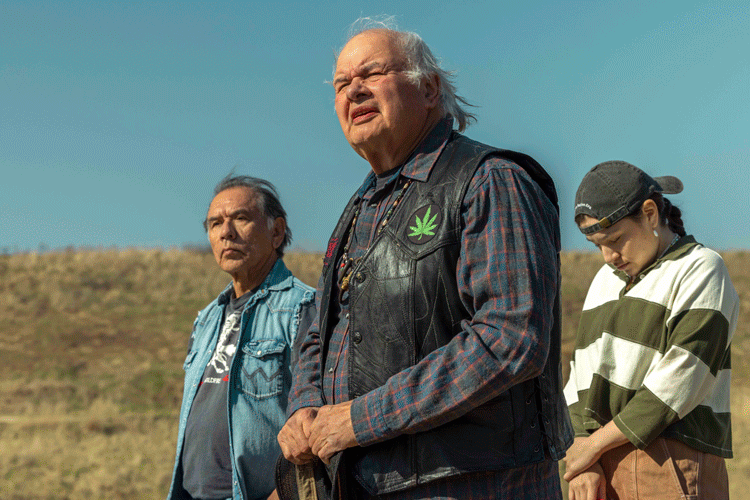Television review: ‘Jesse Stone: Innocents Lost’
- Share via
With six very successful Jesse Stone films under his belt, Tom Selleck can pretty much play Robert B. Parker’s tough and troubled cop in his sleep. Which, in the seventh film, “Jesse Stone: Innocents Lost,” airing on CBS Sunday night, he occasionally does.
Stone, having been fired from his job as chief of police in the small but crime-ridden Massachusetts hamlet of Paradise, is now contemplating his future. Still reeling from his divorce and not a lighthearted chap to begin with, Stone is understandably depressed and spends much of his time in grim contemplation of the rocky shoreline, the television set and his equally troubled dog Boomer. Stone is drinking more than is good for him, which explains the sleeping and also a few long overdue visits to his shrink (a delightful William Devane). His faithful former colleagues Rose (Kathy Baker) and Suitcase (Kohl Sudduth) are left to deal with the new chief, a callow and irritating young comer who is more interested in polishing the image of Paradise than actually catching criminals. So when a young woman turns up dead in her car, he is more than happy to leave the cause of death at suicide.
But Jesse knew the girl in question, a college student he befriended when she was busted for a DUI, and he is determined to find out what really happened. Meanwhile, his old friend, State Homicide Commander Healy (Stephen McHattie), needs some help with a Boston murder case. While investigating both matters, Jesse must face the fact that his own self-obsession may have contributed to the girl’s death.
It is impossible not to admire Selleck for keeping Jesse alive (Parker died in 2010 and Selleck has co-written the last three of the film series) and with him a genre and an archetype. As a network made-for-TV movie series, “Jesse Stone” is the last of its kind, and Jesse himself is a throwback to the days when mysteries were solved by doggedness and police work rather than savant-like specialty skills and/or the miracles of technology. Jesse is as low-tech as it gets — he doesn’t answer his phone, much less text or email, and his TV, which seems permanently turned to TCM, all but has rabbit ears. The pace of the film is as mature as the cast (all the B-plot personal crises are distinctly mid-life) and the dialogue, which is sometimes boiled harder than a 15-minute egg, though at times clever, is decidedly not banter. Bromance is not a term in the Jesse Stone lexicon.
All of which is refreshing and laudable. Still, there is no denying that “Innocents Lost” is long on mood and short on action, relying too much on Selleck close-ups and studiously eschewing dramatic arcs until the very end, when the action becomes intense to the point of the absurd. It’s also hard to rationalize showing such extended scenes of “The Bridge on the River Kwai” and “Mr. Smith Goes to Washington,” fine movies both but as distracting here as an anvil on the head.
Interesting points are made about rehab clinics and personal responsibility but too often they are watered down (literally) by the rain and the fog and the scotch, not to mention the plaintive whine of a muted horn. Neither a little sunshine nor an occasional smile from Selleck would shatter the world of Jesse Stone; strength comes as much from contrast as it does consistency.
More to Read
The complete guide to home viewing
Get Screen Gab for everything about the TV shows and streaming movies everyone’s talking about.
You may occasionally receive promotional content from the Los Angeles Times.







